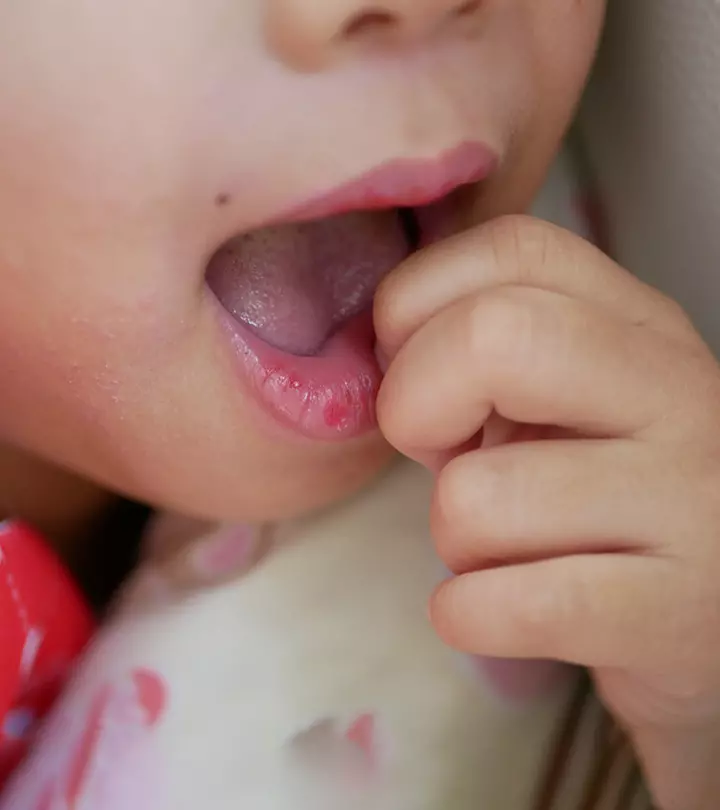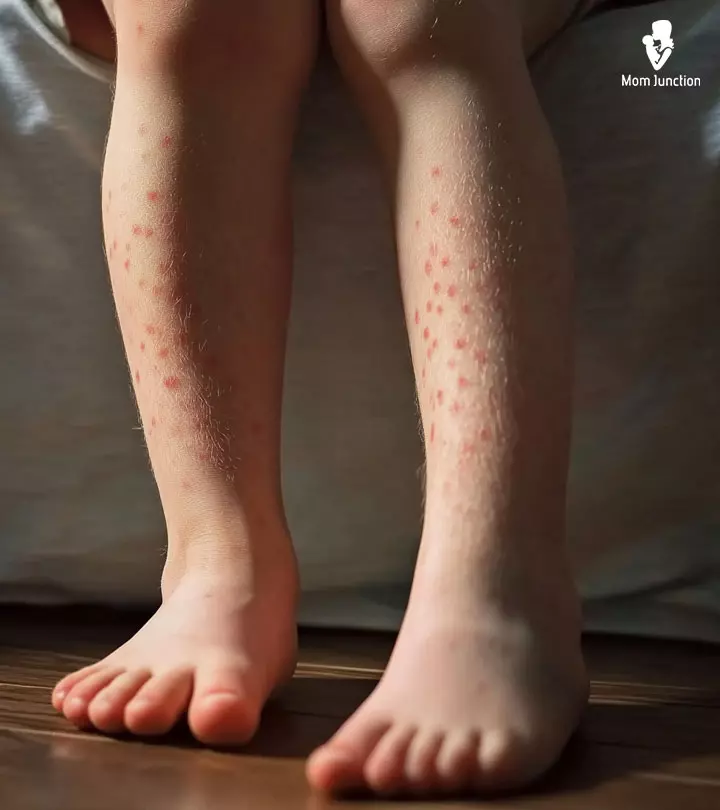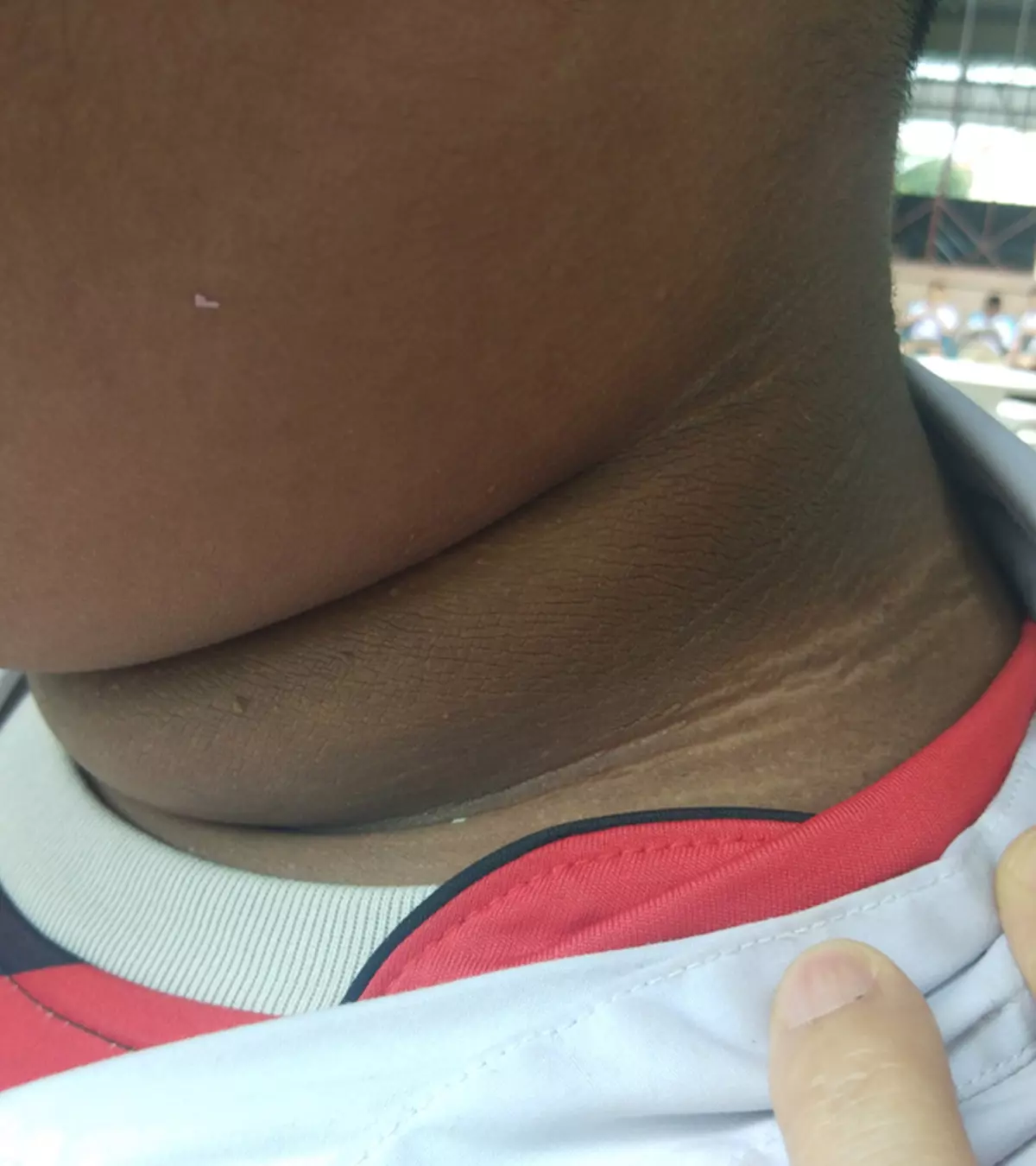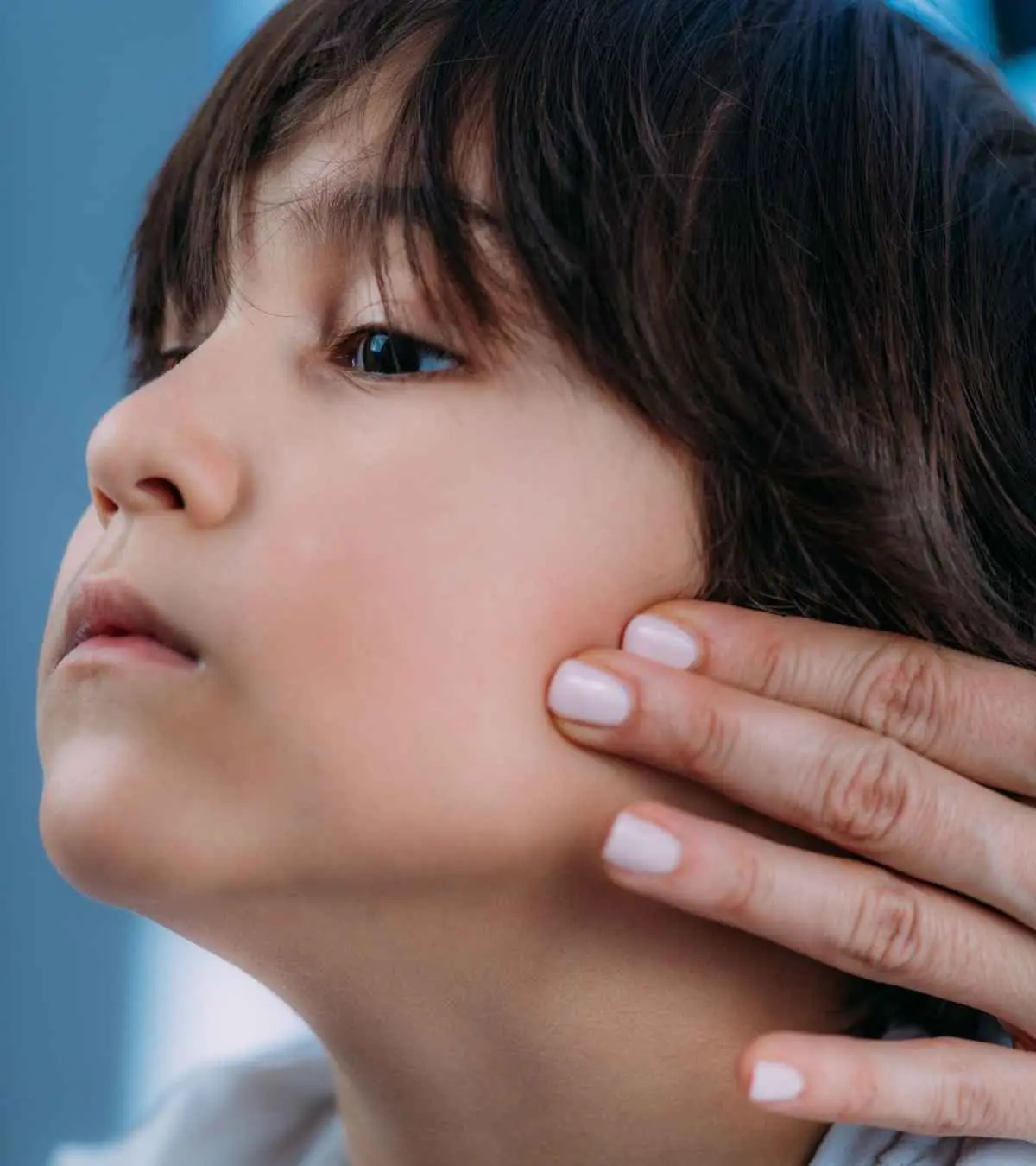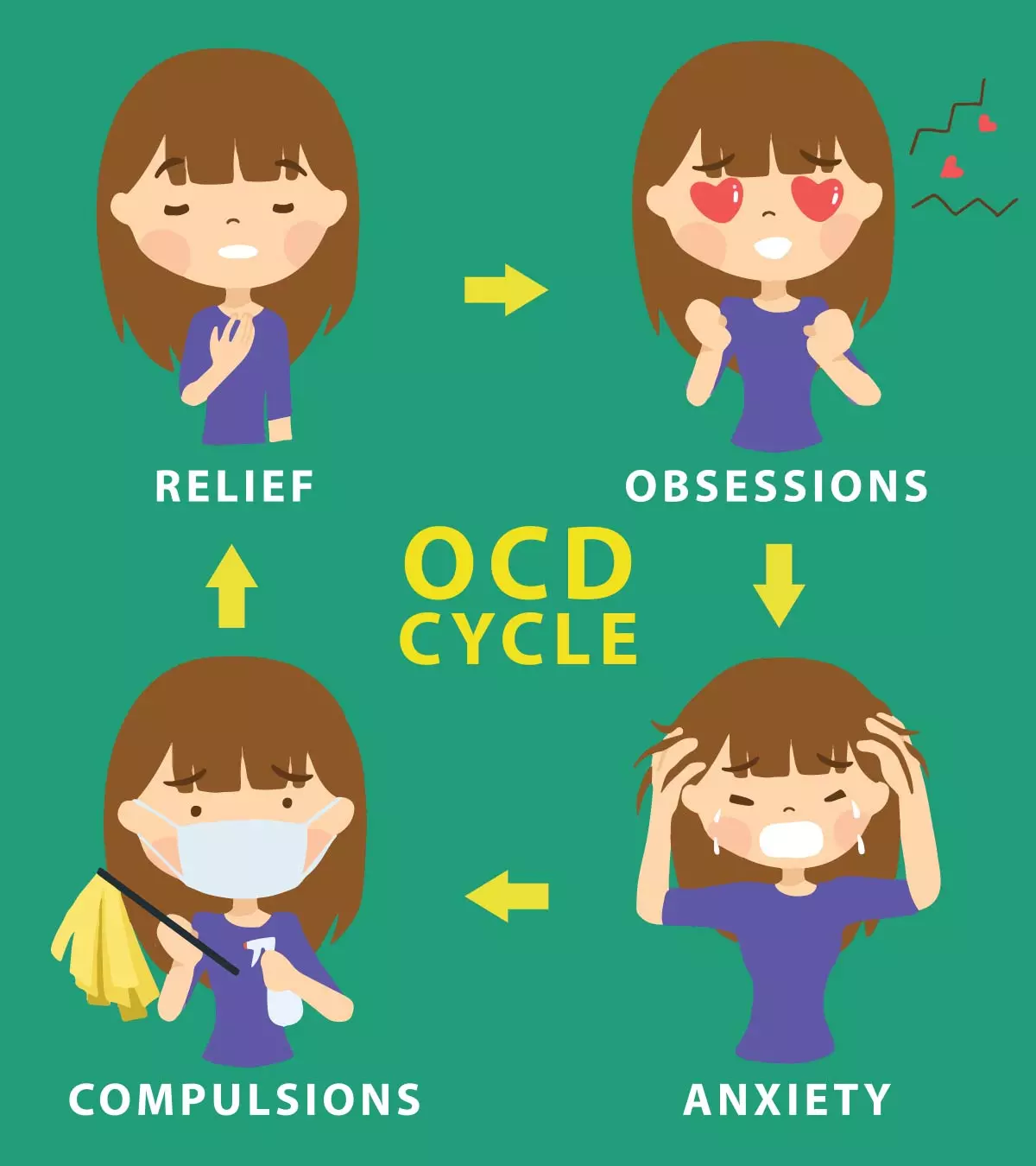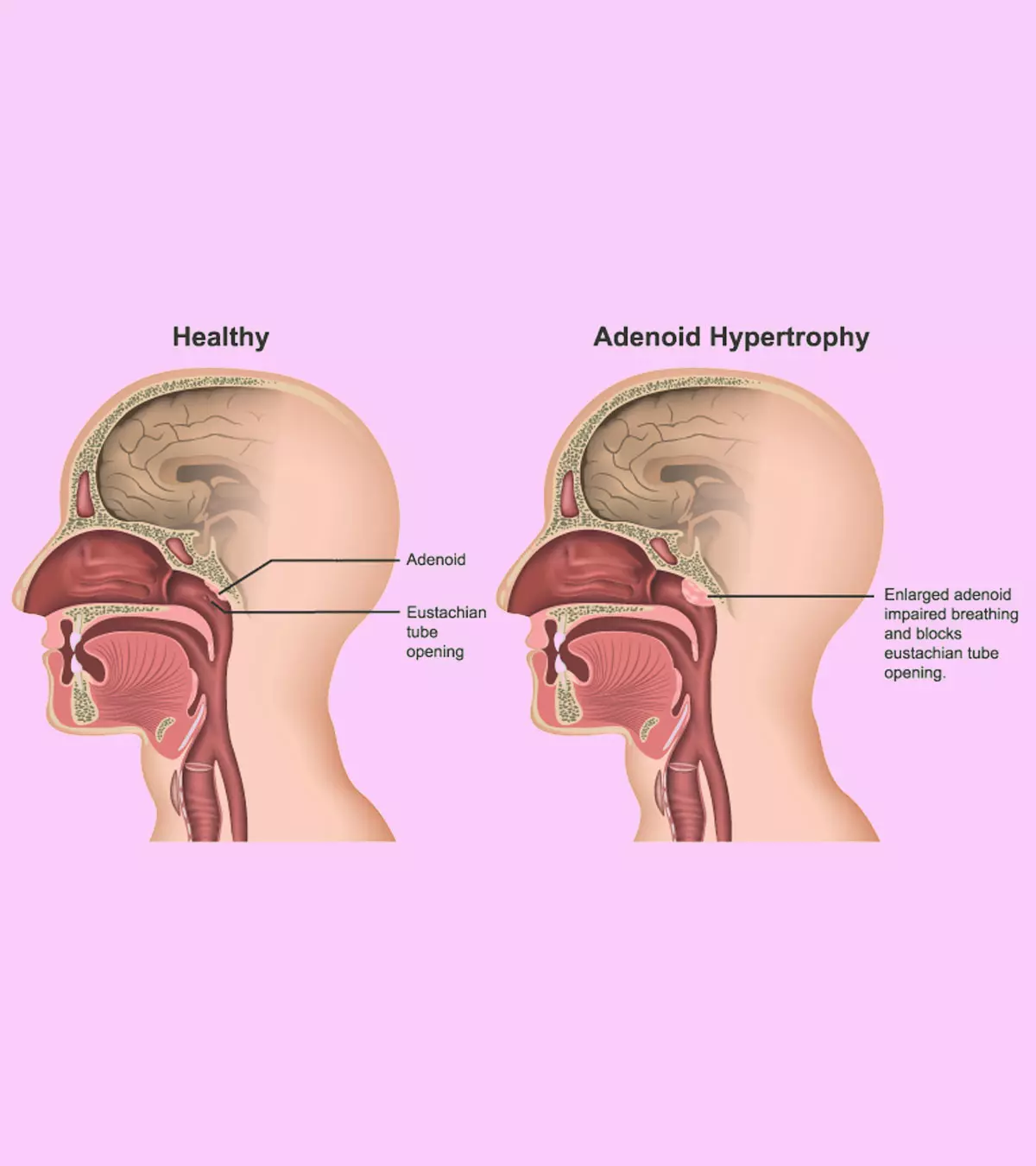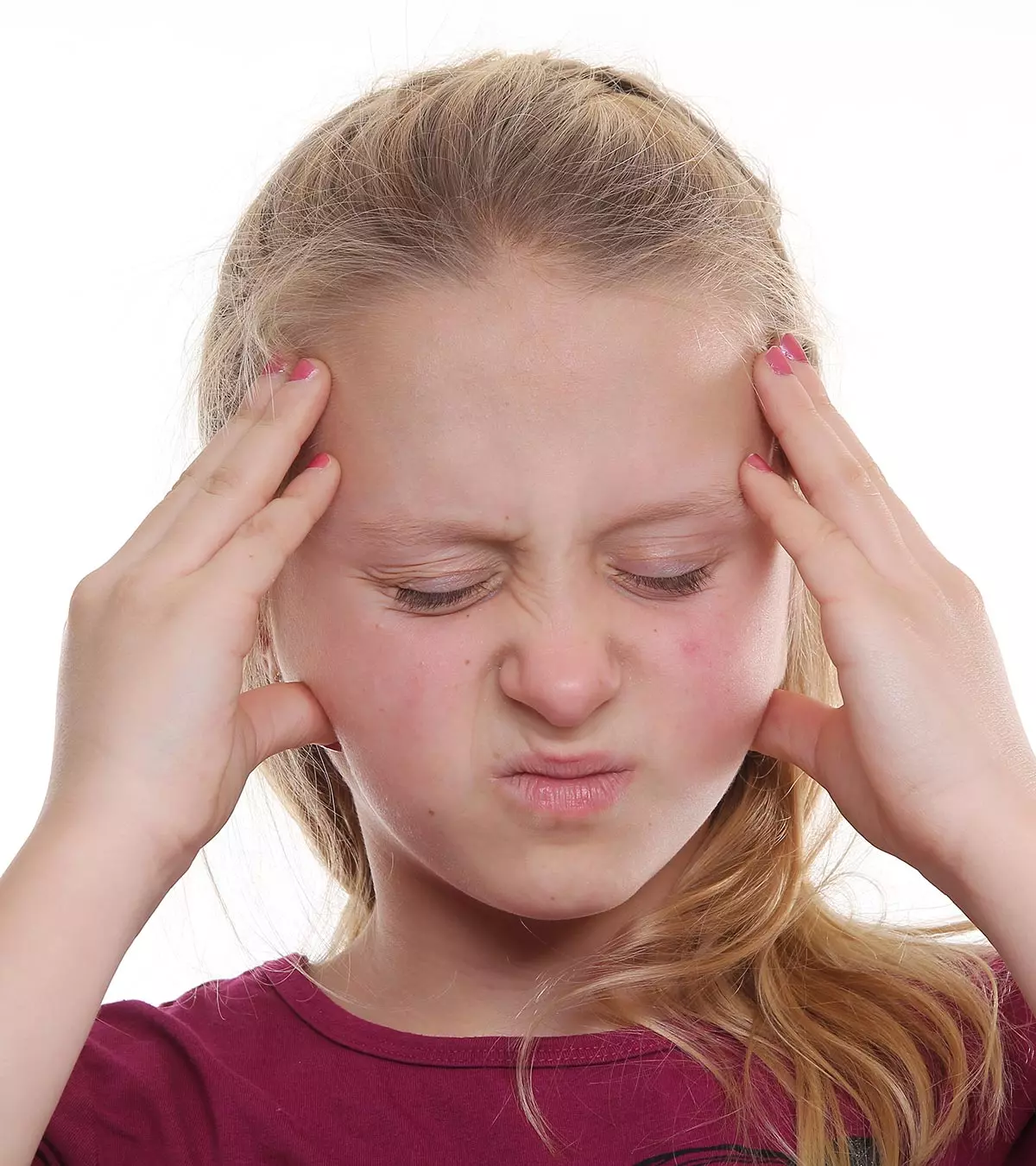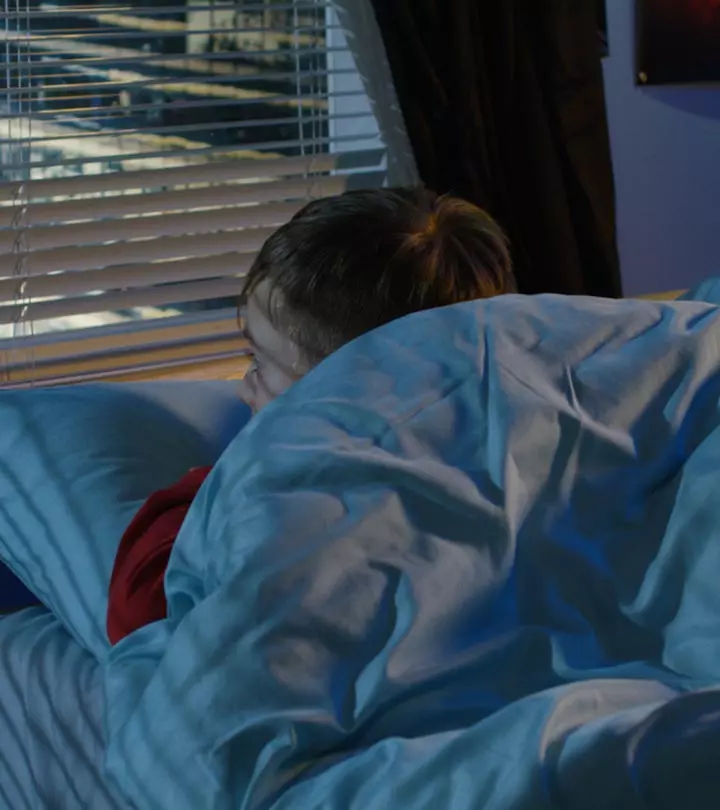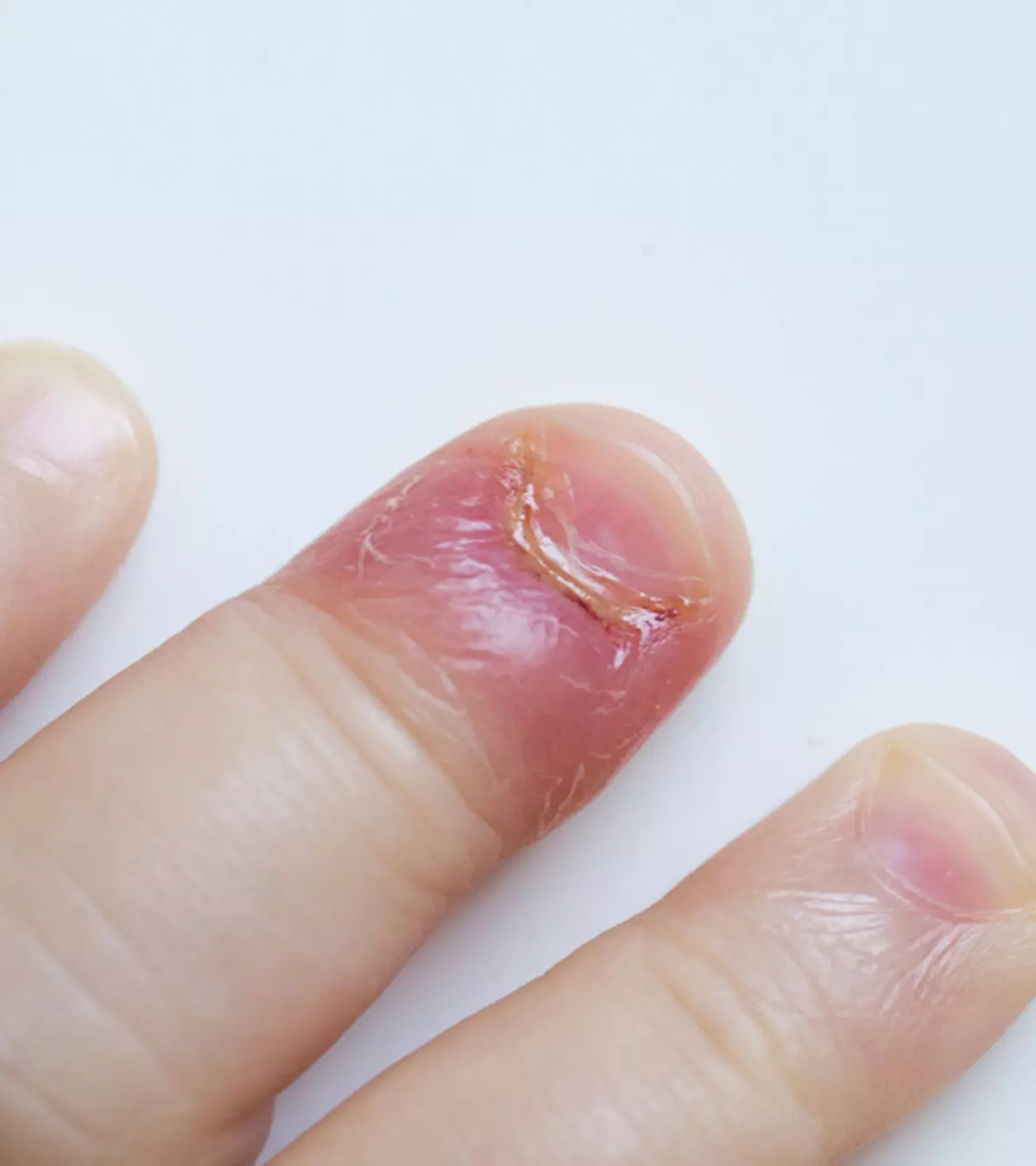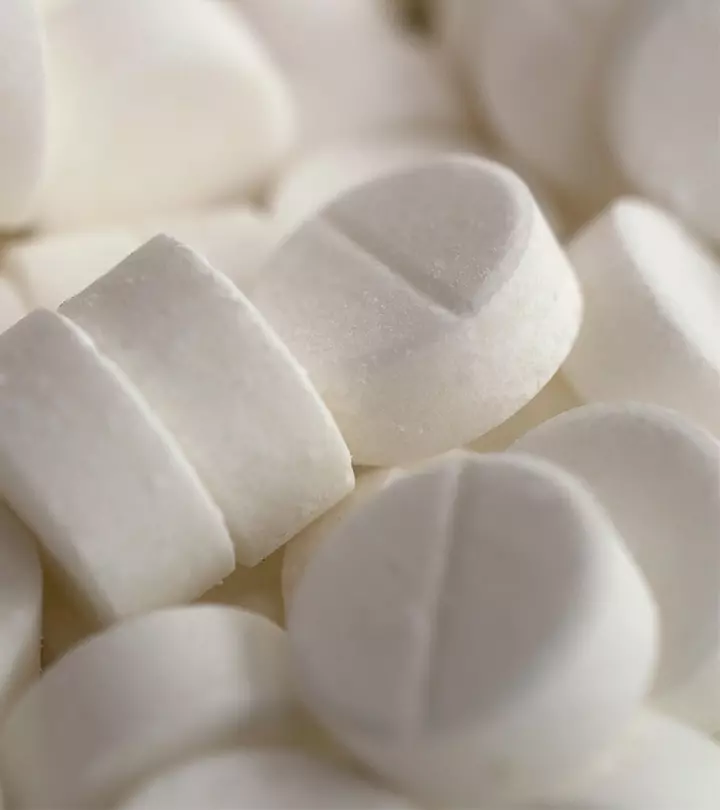
Image: iStock
Ritalin for children is a prescription-only drug. It is a brand name for methylphenidate, a central nervous system stimulant. Methylphenidate is available in immediate-release or sustained-release formulationsiThe medicine is released slowly for a prolonged effect on the body (1).
Centers for Disease Control and Prevention estimated that approximately 7 million children aged 3 to 17 have been diagnosed with ADHD (2). Ritalin is a commonly used medicine for children with ADHDiA neurodevelopmental disorder characterized by attention deficiency, hyperactivity, and impulsive behavior . It helps them control their hyperactive and impulsive behaviors and increases concentration. Read the post to learn about the safety of Ritalin use in children and its side effects and possible risks.
Key Pointers
- Ritalin works on neurotransmitters and helps children with ADHD with their characteristic hyperactive and impulsive behavior.
- Although safe for children above six years, it should not be given to children with underlying conditions.
- It can induce nausea, headache, nervousness, increased heart rate, and other side effects.
- To avoid hallucination and other complications, inform the doctor about your child’s complete medical history.
How Does Ritalin Work?
The mode of action of methylphenidate is not fully understood, but it is thought to act on the cortex and the brain stem regions to produce stimulant effects. It may show its action by blocking the reuptake of neurotransmittersiChemical messengers in the brain that are responsible for the proper functioning of the body , such as dopamineiA neurotransmitter and hormone that produces feelings of pleasure and motivation and norepinephrineiA neurotransmitter and hormone responsible for the “fight or flight” response during stressful situations , resulting in increased concentration (3). These effects could be desired to mitigate the symptoms of ADHD in children. The drug is also thought to improve focus in people diagnosed with ADHD.
Is Ritalin Safe For Children?
The US Food and Drug Administration (FDA) approves the use of Ritalin for children above six years of age.
It should be given to a child only when prescribed by a doctor. Ritalin should not be given to children with the following conditions (4).
- Anxiety, tension, or agitation
- GlaucomaiEye disorder due to the accumulation of fluid in the front part of the eye that increases the pressure and causes optic nerve damage (eye disorder)
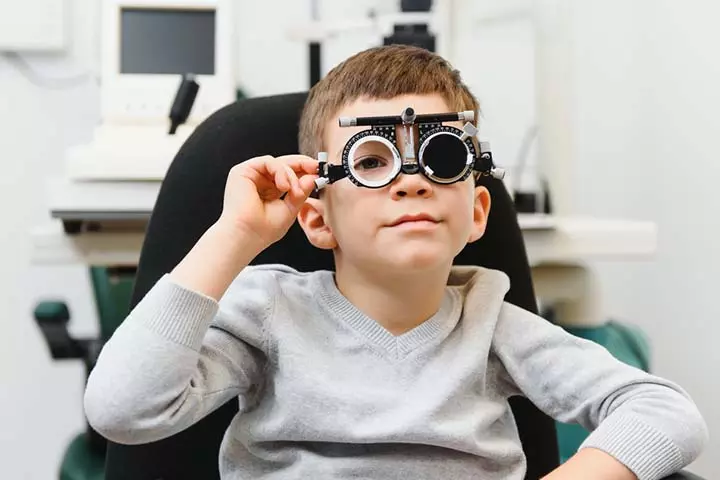
- Tics (repeated movements or sounds that are difficult to control) or Tourette’s syndromeiA nervous system condition characterized by uncontrolled movements or speech repetitions known as tics (or family history of it)
- Children on antidepressant medications of the class called monoamine oxidase inhibitors (MAOIs) within the past 14 days
- Children with allergies to any component of the Ritalin formulation, including inactive ingredients, such as lactose, magnesium stearate, polyethylene glycol, starch, sucrose, and talc
What Is The Dosage Of Ritalin In Children?
Ritalin is available in the following dosages (5) (6).
- Immediate-release tabletsiThe medicine is released and absorbed by the body without delay (5, 10, and 20 mg)
- Extended-release tablets (Ritalin SR of 20 mg strength) and capsules (Ritalin LA of 10, 20, 30, and 40 mg strength) where SR and LA stand for sustained-release and long-acting, respectively
Immediate-release formulations provide quick relief from symptoms but require multiple doses throughout the day, while sustained-release and long-acting formulations offer extended symptom control with fewer doses.
 Point to consider
Point to consider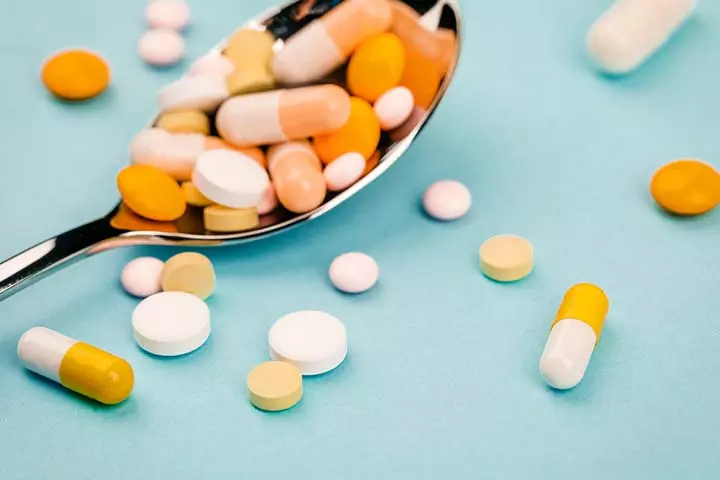
Methylphenidate is generally used as a part of the total ADHD treatment program, which includes counseling and behavioral therapies. The following points may give you an idea of the dosage regimen of Ritalin.
- Ritalin should be started at lower doses of 10 mg per day (5 mg twice daily before breakfast and lunch).
- Your doctor may suggest gradually increasing the dosage by 5 to 10 mg per week, based on its effectiveness in managing your child’s symptoms.
- The drug is usually discontinued if there is no improvement after appropriate dose adjustments over one month.
- Extended-release tablets or capsules are effective for eight hours. These may be used when the eight-hour dosage of the immediate-release tablets adds up to a single Ritalin SR or Ritalin LA formulation.
- The daily dosage should not exceed 60 mg.
 Quick fact
Quick factWhat Are The Possible Side Effects Of Ritalin On Children?
Ritalin affects the brain’s neurotransmitters and could affect other organ systems as well. Common side effects of methylphenidate in children that may be controlled by reducing the dosage include (5) (7):
- Nervousness
- Sleep disturbance (insomnia)
- Headache
- Abdominal pain
- Allergic reactions
- Nausea
- Palpitation
- Decreased appetite
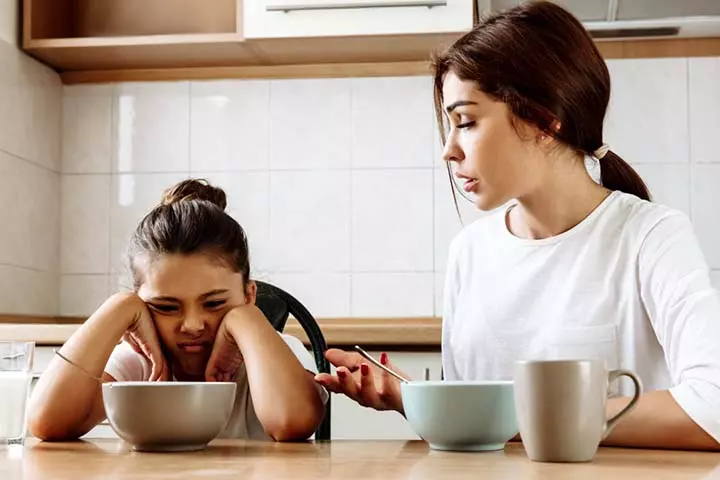
Ritalin may show the following serious side effects in some cases.
- Slow growth in children (height and weight)
- Seizures (especially if the child had seizures before)
- Blurred vision or changes in eyesight
- Priapism (painful and prolonged penile erection) in adolescent males
Some serious adverse effects that require immediate medical attention may be reported in children with preexisting health conditions.
- Increased risk of sudden death in children and adolescents with serious heart problems. Stimulant medications should generally be avoided if the child has conditions such as cardiomyopathyiA heart disease in which the heart muscle fails to pump blood properly to the body and arrhythmia (heart rhythm abnormalities).
- Risk of a sudden increase in blood pressure in children with preexisting hypertension (high blood pressure). Inform your doctor if your child shows symptoms such as chest pain, fainting, altered heart rate, or shortness of breath.
- It may worsen the symptoms of other psychiatric problems (mental disorders) such as bipolar illnessiA mental disorder characterized by extreme mood swings, manic highs, and depressive lows , mania, and aggressive behavior. New psychotic or manic symptoms such as hallucination (hearing voices or seeing things that are not there) and delusion (believing things that are not true) may occur in some cases.
- Blood circulation problems in fingers and toes if the child has some disorder related to blood vessels. It may cause numbness, pain, changed skin color, and temperature sensitivity in the fingers and toes.
What Are The Precautions To Take When Using Ritalin For Children?
Certain precautions need to be taken before and after your child has been prescribed Ritalin (4).
- Inform your physician about any other health condition of your child or whether they are being treated for any other condition.
- As a parent, it is important not to hesitate when discussing your child’s family history of mental disorders or suicides, including any history with the child.
- Inform your doctor about medications, such as antidepressants, cold/allergy medicines, seizure medications, blood thinners, or blood pressure medications (antihypertensives), which your child is currently on or has taken recently. Ritalin could have undesired drug interactions.
- Make sure to inform your child’s healthcare professional of Ritalin use before starting any over-the-counter (OTC) product, health supplement, or herbal formulations for your child.
- Keep the medication away from children as it may cause drug dependence and abuse, even in school-aged children. Refrain from sharing or giving away this medication.
- Seek emergency medical support in case of overdose.
- If your child experiences decreased appetite or nausea, consider offering smaller, more frequent meals or nutrient-dense snacks to ensure they receive adequate nutrition.
Frequently Asked Questions
1. How long can a child take Ritalin?
If Ritalin works well for your child, the doctor may advise using it for several months or even years. However, Ritalin is not a life-long medicine; the doctor will monitor the child’s progress every six months, taper the dose, or stop the medicine based on the improvement shown (1).
2. Does Ritalin affect IQ?
No, Ritalin does not impact the child’s IQ. It is often misunderstood to increase IQ because it improves cognitive performance in children with ADHD (9).
3. What are the long-term effects of taking Ritalin for children?
According to a study, children and adolescents who had Ritalin (methylphenidate) treatment for up to two years did not experience any adverse impacts on their neurological and mental health (10).
4. What should I do if my child misses a dose of Ritalin?
It is best to skip the dose of Ritalin that your child misses and give them the next dose at its specified interval. Avoid giving the child the missed dose immediately before the next dose or double-dosing, as these can have unnecessary consequences.
Ritalin for children is believed to act on the cortex and brainstem regions. It is one of the most effective ways to handle hyperactive children as well as reduce the severity of the condition. It improves impulse control in children with ADHD (11). The possible side effects such as nervousness and headache may be minimized by using the lowest dose of medication. Talk to your doctor about the suitability of the medication, as it may not be given to those with anxiety or tension. Discuss the right dosage for your child. Inform your healthcare provider if children develop any side effects after taking it, and make sure to follow up regularly.
Infographic: Side Effects To Look Out For When Giving Ritalin To Children
Ritalin is prescribed to mitigate ADHD symptoms in children. However, as the medication works via modulating the brain neurotransmitters, it may produce side effects. The infographic below lists the common and serious adverse effects to look out for when your child is on this medication.

Illustration: Momjunction Design Team
Illustration: Ritalin For Children: Its Safety Side Effects & Precautions
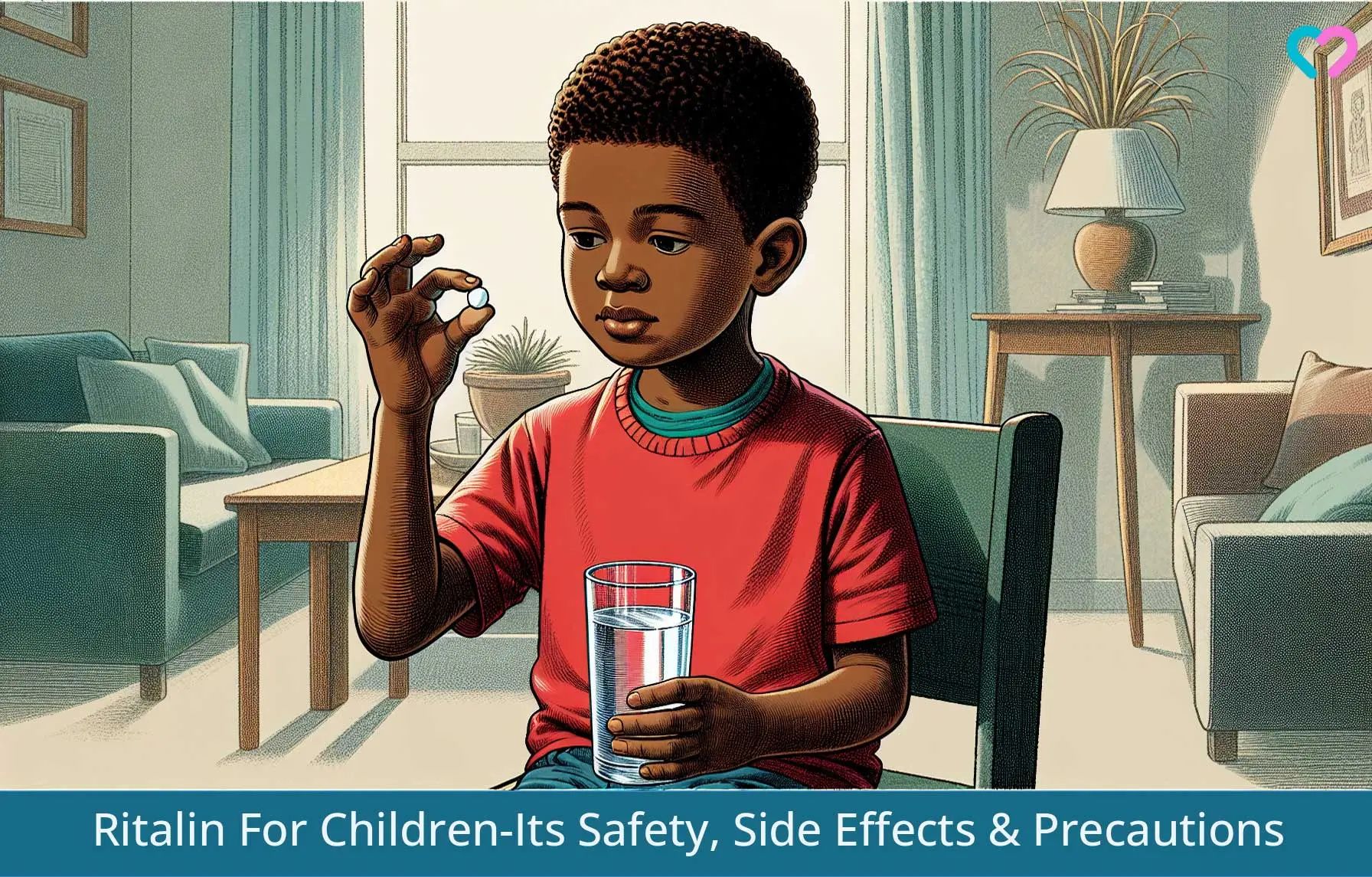
Image: Stable Diffusion/MomJunction Design Team
Are you wondering if you should give your child Ritalin or Adderall? This video will provide you with the information you need to make an informed decision.
References
- Methylphenidate for children.
https://www.nhs.uk/medicines/methylphenidate-children/ - Data and Statistics on ADHD.
https://www.cdc.gov/adhd/data/index.html - Corinne Verghese et al.; (2024) Methylphenidate.
https://www.ncbi.nlm.nih.gov/books/NBK482451/ - Ritalin.
https://www.accessdata.fda.gov/drugsatfda_docs/label/2013/010187s077lbl.pdf - Ritalin and Ritalin SR.
https://www.accessdata.fda.gov/drugsatfda_docs/label/2010/010187s073lbl.pdf - Ritalin LA.
https://www.accessdata.fda.gov/drugsatfda_docs/label/2010/021284s018lbl.pdf - Caroline Bodey et al.; (2011); Effectiveness and Tolerability of Methylphenidate in Children and Adolescents with Attention Deficit Hyperactivity Disorder.
https://journals.sagepub.com/doi/10.4137/CMT.S6615 - Ritalin: What You Need to Know.
https://www.understood.org/en/articles/ritalin-what-you-need-to-know - Lishan Zhang et al.; (2011); Effect of methylphenidate on intelligence quotient scores in Chinese children with attention-deficit/hyperactivity disorder.
https://pubmed.ncbi.nlm.nih.gov/21192143/#:~:text=Conclusions%3A%20Methylphenidate%20can%20enhance%20cognitiveas%20an%20increase%20in%20intelligence. - Cheuk-Kwan Sun et al.; (2019); Therapeutic effects of methylphenidate for attention-deficit/hyperactivity disorder in children with borderline intellectual functioning or intellectual disability: A systematic review and meta-analysis.
https://idp.nature.com/authorize?response_type=cookie&client_id=grover&redirect_uri=https%3A%2F%2Fwww.nature.com%2Farticles%2Fs41598-019-52205-6 - Kenneth KC Man et al; (2023); Long term safety of methylphenidate in children and adolescents with ADHD: 2-year outcomes of the Attention- Deficit Hyperactivity Disorder drugs use chronic effect (ADDUCE) study.
https://www.thelancet.com/journals/lanpsy/article/PIIS2215-0366(23)00042-1/fulltext
Community Experiences
Join the conversation and become a part of our nurturing community! Share your stories, experiences, and insights to connect with fellow parents.
Read full bio of Dr. Anuradha Bansal
Read full bio of Dr. Joyani Das
Read full bio of Dr. Ritika Shah
Read full bio of Vidya Tadapatri





